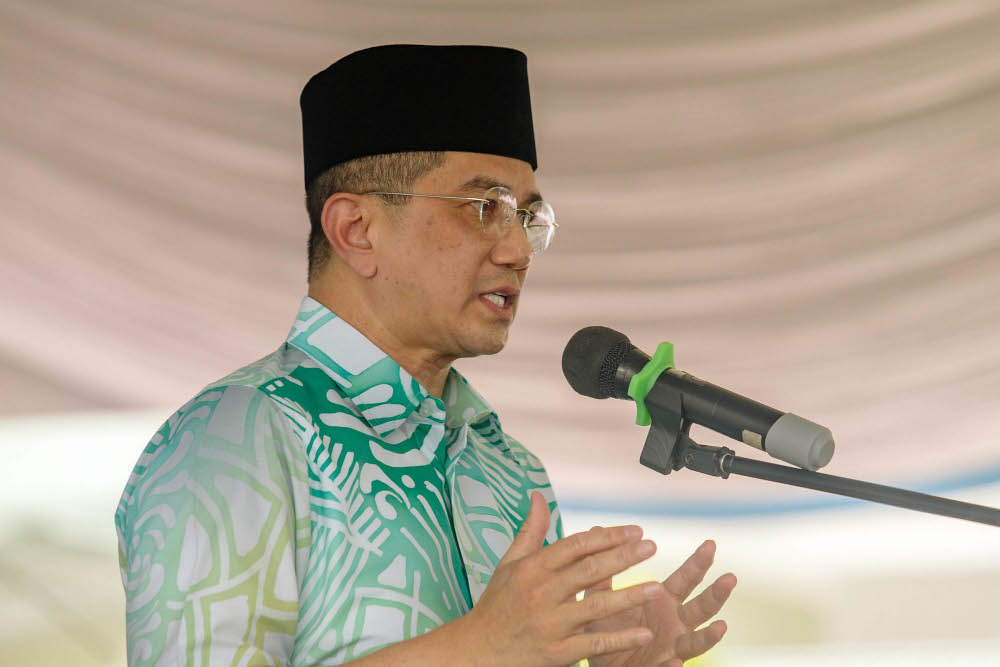Subscribe to our Telegram channel for the latest updates on news you need to know.
KUALA LUMPUR, April 21 — The Cabinet has approved the National Investment Aspirations (NIA), a forward-looking growth framework that will outline the basis for Malaysia’s investment policy reforms.
In a statement today, Senior Minister cum International Trade and Industry Minister Datuk Seri Mohamed Azmin Ali said the NIA would be central to revitalise Malaysia’s investment climate, attract high-quality investments into the country and create high-income jobs, particularly post-Covid.
“Moving forward, Malaysia must adopt a comprehensive approach to reinvigorating the investment ecosystem and respond adequately to emerging megatrends, as well as the evolving needs of our investors.
“Malaysia needs to rise to this challenge by continuously enhancing our unique value propositions which span across a wide array of elements such as incentives, facilitation, talent, infrastructure, as well as legal, regulatory, procedural and institutional mechanisms,” he said.
Mohamed Azmin said NIA at its core, would focus on coherence and cohesiveness, with these aspirations being reflected across all national policy documents and initiatives related to investment, including the Fourth Industrial Masterplan and the 12th Malaysia Plan.
He said the five core parameters framing the NIA would be integral to enhance the nation’s competitiveness and ensure that Malaysia remains a preferred investment destination.
“These aspirations would bear the foundation for Malaysia to become a regional investment hub, which would increase economic diversity and complexity through the development of sophisticated products and services, with high local research and development (R&D) as well as innovation.
“It would also create high skill jobs to provide better income for the rakyat, expand and integrate domestic linkages into regional and global supply chains by improving their resiliency, as well as develop new and existing clusters focusing on high productivity sectors, including local products and services while improving inclusivity to contribute towards the socio-economic developmental agenda,” he said.
In order to enable further diversification and ventures into more complex industries, Mohamed Azmin said emphasis should also be accorded towards fostering a robust and dynamic tax and incentives regime, building a talent pool in close collaboration with relevant industries, improving licensing and regulatory frameworks and augmenting facilitation elements such as Customs procedures.
The senior minister also said the NIA recognised the significant role of investment promotion strategies in attracting quality investments.
In this context, the NIA will guide policy and non-policy prescriptions that place a specific emphasis on more targeted, relevant and effective investment promotion and facilitation strategies, he said.
“This is pivotal to ensure that investments in the identified priority sectors are able to flow into the country and lead to positive economic spillover effects,” said Mohamed Azmin.
In addition, he said the NIA would focus on inclusivity and sustainability that is compatible with the environmental, social and governance (ESG) goals, as new investments that are anchored upon these elements would propel growth in the technologically sophisticated sectors, as well as strengthen forward and backward linkages.
“In the long term, the NIA encourages sustained flow of quality investments in new and possibly complex growth areas, foster innovation and sophistication, create greater job opportunities and improve income prospects.
“It will also further build investors’ and business confidence in Malaysia, as we continue to remain competitive and serve as the epicentre for economic and business activities in the region,” he added. — Bernama



